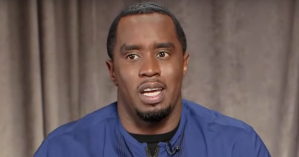There has been some progress in the ongoing debate over the upcoming stimulus package. While there are major differences between Republicans and Democrats on the issue, both Senate Majority Leader Mitch McConnell and House Speaker Nancy Pelosi have once more told reporters that a deal will be struck in the “near future.”
“Exactly when that deal comes together I can’t tell you, but I think it will at some point in the near future,” McConnell told CNBC’s Squawk on the Street. Pelosi agreed, speaking shortly after McConnell, who said she expects an agreement that will boost both the economy and health-care system that have been impacted by the pandemic. “Will we find a solution? We will,” Pelosi said. “Will we have an agreement? We will.”
Videos by PopCulture.com
Negotiators have struggled to craft a bill that could pass both the Republican-led Senate and the Democrat-led House as they hash out numerous disputes. Some of the contention stems from decisions over how to extend extra federal unemployment insurance, another extension for a moratorium on evictions on federally backed housing, as well as school aid.
Part of the issue between the parties is the convenient return of Republican concern over the national deficit. “The White House is trying to solve bad polling by agreeing to indefensibly bad debt,” Sen. Ben Sasse said. “This proposal is not targeted to fix precise problems — it’s about Democrats and Trumpers competing to outspend each other.” Sasse’s concerns have been echoed by both Senators Rand Paul and Ted Cruz, which has led to tensions within the party itself — and right before the election. “It’s not a winning hand that Republicans are trying to play here,” a Democratic operative told Vox. “I think it’s only made matters complicated that they’re at war with their own caucus.”
Another major point of contention has been the Democrats’ call to extend the CARES Act unemployment benefits, which add $600 a week onto state-sponsored payments. Several Republicans, including Cruz, have been vocal against those measures, opting for more tax cuts and deregulations for businesses. Those benefits expired at the end of July, and are likely to remain a sticking point after the U.S. Department of Labor has reported that more than 1.2 million Americans filed for first-time unemployment benefits last week. The initial draft of the GOP-backed HEALS Act slashed those benefits to $200 a week, though Senate Majority Leader Mitch McConnell has said he’d support the CARES Act extension — so long as President Donald Trump approved.









